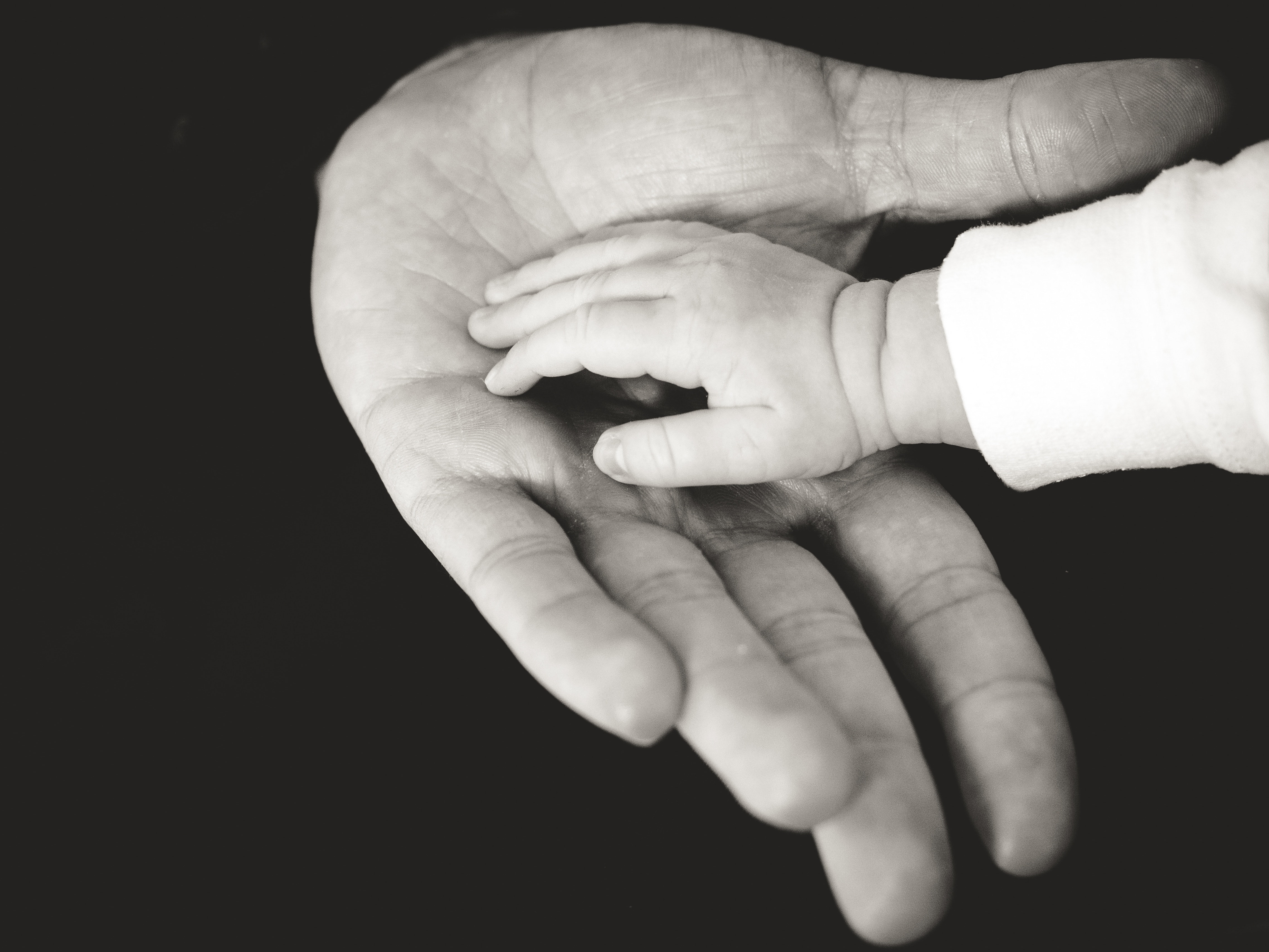Pebbles Study

WHAT IS THE PEBBLES STUDY?
Do you have a family history of allergy and/or eczema? We are looking for families with newborn babies (up to three weeks of age) where a biological parent or older sibling has asthma, eczema, hay fever or food allergy.
In this study, we want to find out if infant skin management with a particular cream, called EpiCeram™, might help reduce the chances that a child will develop allergies.
Eczema is often the first sign that an infant has allergies, and infants with eczema often go on to develop asthma and other allergic diseases. It is likely that eczema allows substances from the environment (allergens) to be exposed to the immune system through the damaged skin, resulting in allergies (sensitisation).
EpiCeram™ is a cream that has been designed to help build up the skin’s ability to be a barrier against the environment. This treatment contains the major components of human skin at physiological concentration.
Our study intends to find out if building and maintaining infants’ skin barrier function can prevent eczema, allergies and eventually asthma.
If eligible, your baby will be randomly (like flipping a coin) put into a group receiving the study treatment cream (EpiCeram™) or a group receiving standard skincare. If you are in the treatment group, we will ask you to apply the cream twice daily for 6 months.
This study is funded by the National Health and Medical Research Council.


We're looking for new mums (with a family history of eczema, asthma or allergy) and babies to help us find a way to prevent eczema and food allergies.
Eczema affects 1 in 3 Australian infants - children with eczema have an increased risk of developing food allergies and asthma.Allergic conditions inflict a substantial burden of illness worldwide.
Eczema, asthma and food allergy also appear to be dramatically increasing. In our recent HealthNuts study, 10% of infants had a challenge proven food allergy.
There are currently no effective strategies to prevent infants developing allergic diseases.Current eczema treatments do not cure the condition, but rather aim to reduce symptoms and their impact on the affected child and family members.
Children with mild eczema are typically treated with regular topical emollients, although there is limited evidence for their effectiveness.
This study is the first to test the effect of early life infant skin management for the prevention of eczema beyond the active treatment period, and for preventing the development of food allergy and allergic sensitisation. If successful, our trial has the potential to help reduce the burden of eczema and food allergy.
Helpful links
The Australasian Society of Clinical Immunology and Allergy
Current ASCIA guidelines relating to infant feeding and allergy prevention


RECRUITMENT FOR THE PEBBLES STUDY HAS NOW CEASED. THANK YOU TO ALL OF OUR PARTICIPANTS FOR YOUR CONTINUED INVOLVEMENT.
Do either of your baby's biological parents or any of their older siblings suffer from asthma, eczema/atopic dermatitis, hayfever/allergic rhinitis or food allergy? If yes - and your baby is under three weeks old then you may be eligible to join our study.
Participation in this study, will involve:
- An initial assessment (at either the Royal Women's Hospital, Frances Perry or the Mercy - or at the Royal Children's Hospital if you have left hospital or gave birth at another hospital) where you will be asked to complete two surveys and undertake a skin assessment of your baby. PLEASE NOTE that during the COVID-19 pandemic this assessment will be held over the telephone and not face-to-face.
- Completing 4 online surveys, over the 12-month study period.
- Completing a short weekly online diary card, over the 12-month study period.
- Bringing your baby to the RCH for two visits (at 6-weeks and 12-months) where he/she will have pain-free skin assessments. PLEASE NOTE that during the COVID-19 pandemic, the 6-week assessment will be held online.
- Undertaking a skin prick test at 12-months to find out if your baby has a sensitivity to common substances (dust, cat hair, rye grass, milk protein, shellfish and peanuts). Children who are sensitised to certain foods during this testing will be offered an appointment to undergo a food challenge to determine if they are allergic to those foods. The 12-month assessment is continuing with strict hygiene protocols in place during the COVID-19 pandemic.
- Optional blood prick, oral microbiome, skin and breast milk samples.
To learn more about what is involved, please download the current COVID-19 specific participation information form:
Participant information form
Contact details:
Freecall: 1800 875 127
Email: pebbles-study@unimelb.edu.au



Researchers
Principal Investigator: A/Prof Adrian Lowe
Royal Women's Hospital Site Investigator: Prof Shaun Brennecke
Mercy Women's Hospital Site Investigator: Dr Arun Sasi
Royal Children's Hospital Site Investigator (and Co-Investigator): Prof Mimi Tang
Co-Investigator: A/Prof John Su
Co-Investigator: Prof Shyamali Dharmage
Co-Investigator: Dr Melanie Matheson
Co-Investigator: Prof Paul Robinson
Co-Investigator: Dr Donald Leung
Co-Investigator: Dr Jennifer Perret
Co-Investigator: A/Prof Kirsten Perrett
Co-Investigator: Prof Lyle Gurrin
Co-Investigator: A/Prof Caroline Lodge
Associate Investigator: Prof Michael Abramson
Associate Investigator: A/Prof Kim Dalziel
Associate Investigator: Dr Dinh Bui
Associate Investigator: Cheryl Talent
Associate Investigator: Dr Elasma Milanzi
Associate Investigator: Dr Robert Boyle
Associate Investigator: Dr Jennifer Koplin
Study advisor
Shaie O'Brien


If you would like to find out more about the PEBBLES study, please contact us using the following details:
Phone
1800 875 127
To learn more about what is involved in participating in the PEBBLES study, please download the participation information form:
Participant information form
Express your interest and assess your eligibility HERE
